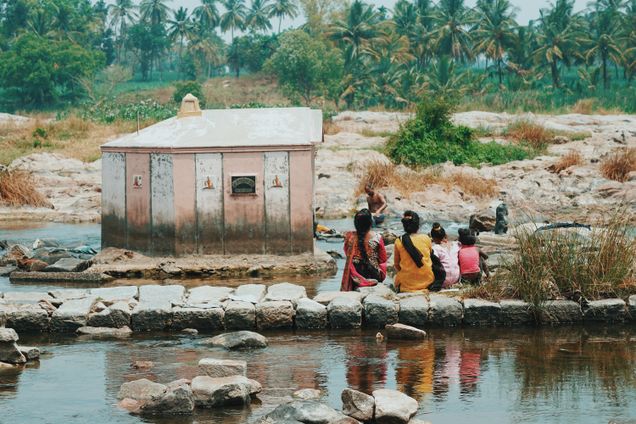Climate Shocks and Gendered Political Transformation: How Crises Alter Women’s Political Representation

In 2019, visible, “rapid onset” climate-related disasters displaced roughly 24.9 million people, with more than 143 million anticipated to be internally displaced by 2050 in Latin America, South Asia and sub-Saharan Africa. Not only can climate change induce migration, but climate shocks—which can be defined as discrete, unanticipated destruction due to weather such as floods, drought or windstorms—can also destabilize gendered social systems. Climate shocks can initiate political transformations that compel women to mobilize to redirect local and national political agendas to respond to the vulnerabilities exposed by the shocks.
In a new Politics & Gender article, Rachel Brulé develops a theory based on the case of South Asia, a region with high climate induced migration and strong patriarchal norms. The default form of political organization is one of “family-centered political coordination” in which senior men leverage control over economic resources to accrue information, networks and influence as political representatives of the household. Absent policy interventions, women’s voices are often missing or ignored in crucial political negotiations, making South Asia a prototype of the process through which climate shocks disrupt political patriarchy.
Brulé identifies three major effects of climate shocks on women: first, male out-migration from the devastation wrought by extreme weather alters intra-household power, increasing women’s mobility and autonomy. Second, where climate shocks induce the out-migration of men who are the primary source of income for their households, women left behind frequently face incentives to pursue sources of paid labor independent of male control. Third, women are the dominant specialists in providing care for others, making them most likely to become “first responders” after shocks.
Using the aftermath of India’s 2004 tsunami and Chile’s 2010 tsunami and earthquake as examples, Brulé argues the three gendered effects of climate shocks shift the institutional, organizational and structural barriers that previously limited women’s ability to catalyze radical political change. Male out-migration disrupts restrictions on female mobility, opening opportunities for women to become more politically engaged, in particular by voting. Similarly, economic autonomy spurs political engagement as climate shocks make the state, and its ability to rebuild social and physical infrastructure, salient and indispensable. Finally, where women differentially bear burdens of care, they confront the insufficiency of existing political and social systems and are more inclined to organize politically for systemic transformation.
As climate shocks only increase worldwide, Brulé’s article both provides a basis for understanding when shocks are likely to improve female autonomy and invites further investigation into catalysts for constructive political change that builds collective resilience.
Read the Article